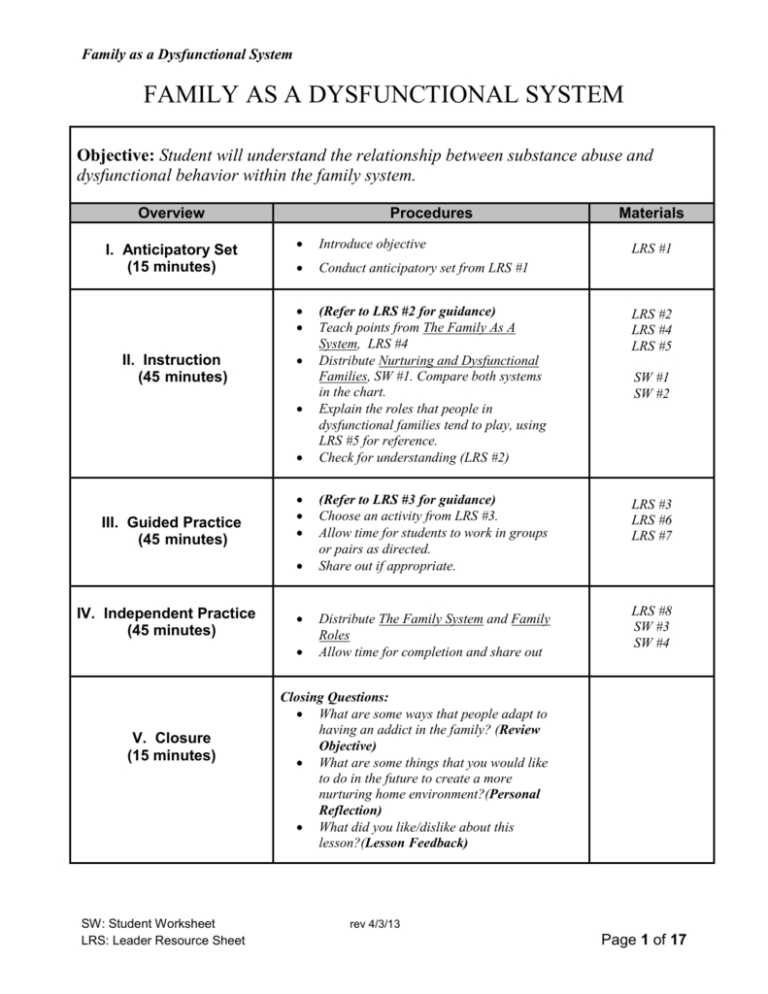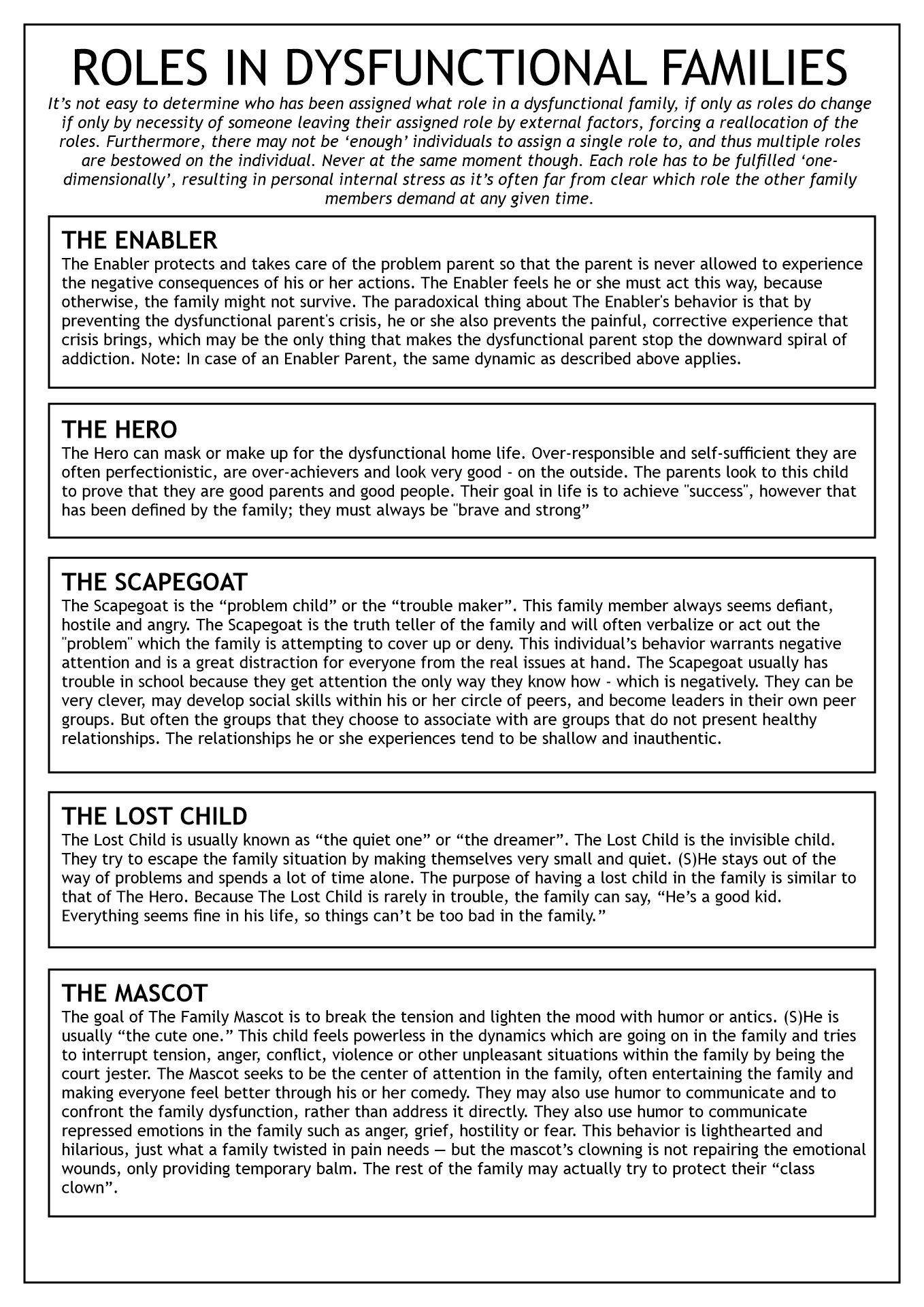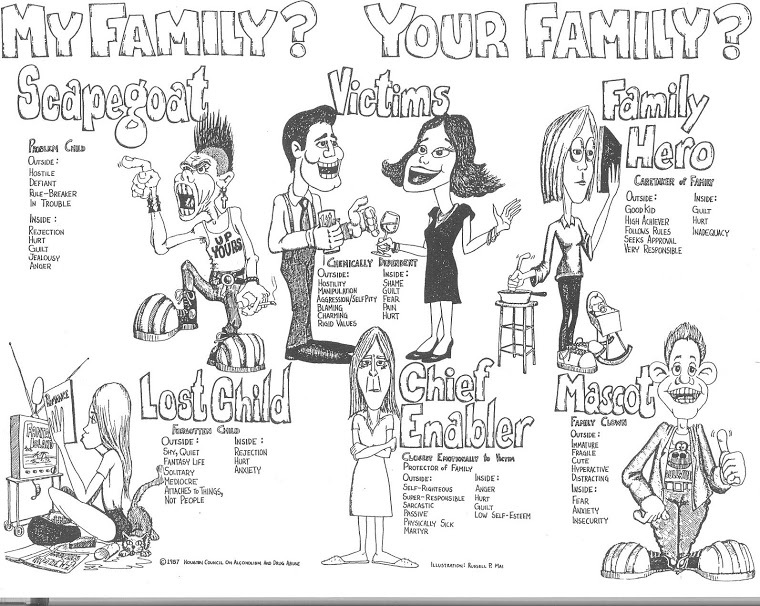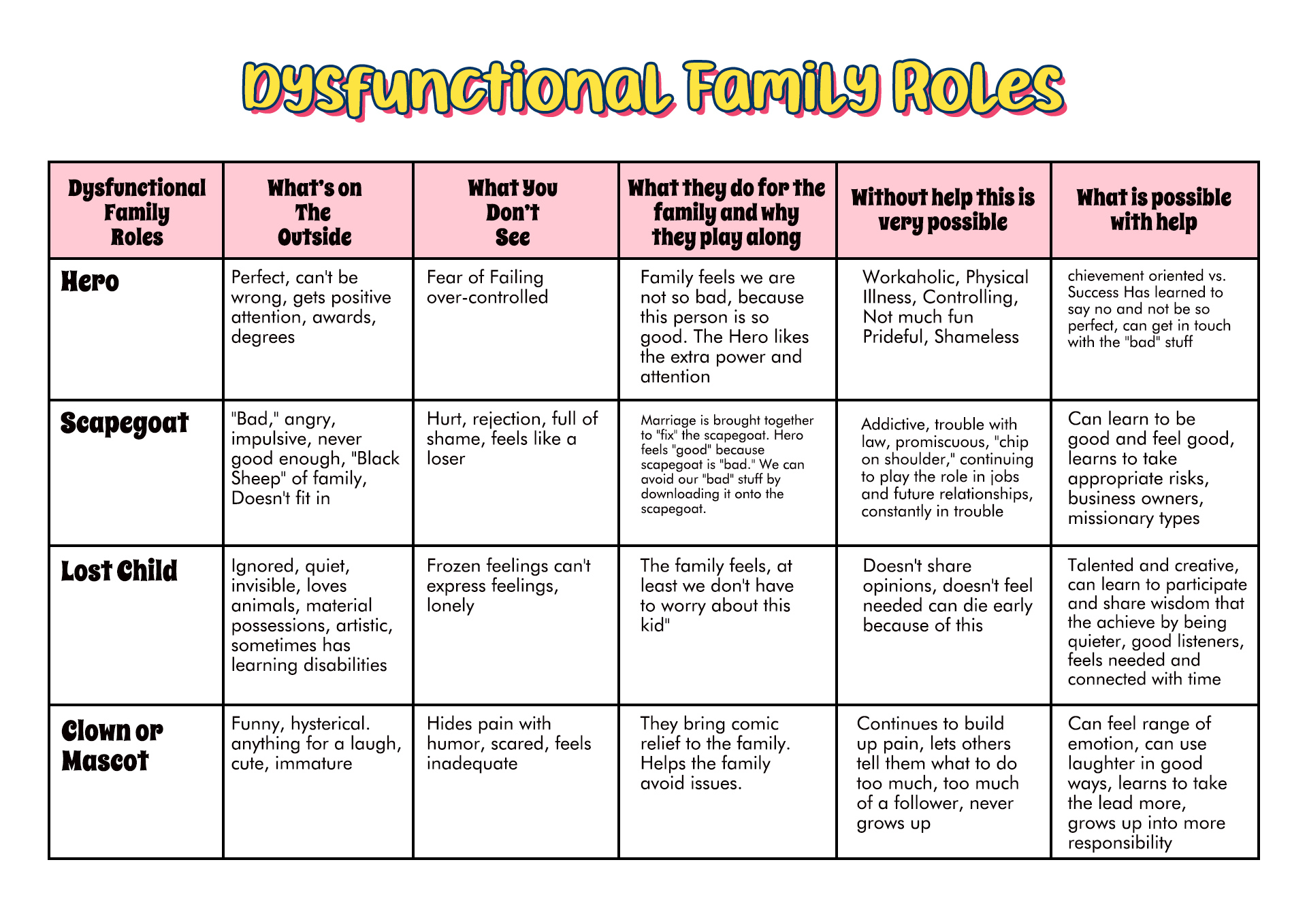Have you ever wondered how your family dynamic affects your behavior? As black individuals, we face unique challenges and experiences that can shape the roles we play in our families. That’s why I wanted to share some resources with you on dysfunctional family roles.
The Hero
 The hero is the family member who wants to be seen as the responsible one. They often take on more responsibilities than necessary and strive for perfection. This can lead to putting pressure on themselves and feeling guilty or ashamed when they fall short. If you identify as the hero, it’s important to recognize that it’s okay to make mistakes and do things just for yourself.
The hero is the family member who wants to be seen as the responsible one. They often take on more responsibilities than necessary and strive for perfection. This can lead to putting pressure on themselves and feeling guilty or ashamed when they fall short. If you identify as the hero, it’s important to recognize that it’s okay to make mistakes and do things just for yourself.
The Scapegoat
 The scapegoat is the family member who takes the blame for everything that goes wrong. They may act out in response to the dysfunction in the family, but their behavior is often a symptom of a deeper issue. It’s important for scapegoats to recognize their own worth and seek support outside of the family if necessary.
The scapegoat is the family member who takes the blame for everything that goes wrong. They may act out in response to the dysfunction in the family, but their behavior is often a symptom of a deeper issue. It’s important for scapegoats to recognize their own worth and seek support outside of the family if necessary.
The Lost Child
 The lost child is the family member who tries to blend in and not cause any trouble. They may withdraw from family events or avoid conflict altogether. While this can help them avoid drama in the short term, it can also lead to feelings of isolation and loneliness. If you identify as the lost child, it’s important to know that you can still be yourself and set boundaries within the family.
The lost child is the family member who tries to blend in and not cause any trouble. They may withdraw from family events or avoid conflict altogether. While this can help them avoid drama in the short term, it can also lead to feelings of isolation and loneliness. If you identify as the lost child, it’s important to know that you can still be yourself and set boundaries within the family.
The Enabler
The enabler is the family member who enables dysfunctional behavior from others. They may make excuses for their loved ones or try to fix their problems for them. This can lead to the enabler feeling responsible for everyone else’s feelings and neglecting their own. If you identify as the enabler, it’s important to recognize that you can’t fix everything and prioritize your own well-being.
The Mascot
 The mascot is the family member who uses humor to diffuse tense situations. They may take on a childish or playful persona to make others feel at ease. While this can be a helpful coping mechanism, it can also lead to the mascot feeling like they can’t be taken seriously. If you identify as the mascot, it’s important to know that you can still be lighthearted while also being taken seriously.
The mascot is the family member who uses humor to diffuse tense situations. They may take on a childish or playful persona to make others feel at ease. While this can be a helpful coping mechanism, it can also lead to the mascot feeling like they can’t be taken seriously. If you identify as the mascot, it’s important to know that you can still be lighthearted while also being taken seriously.
The Manipulator
 The manipulator is the family member who tries to control others through emotional or psychological means. They may use guilt or shame to get their way or make others feel responsible for their problems. If you identify as the manipulator, it’s important to recognize that this behavior is harmful and seek help to change it.
The manipulator is the family member who tries to control others through emotional or psychological means. They may use guilt or shame to get their way or make others feel responsible for their problems. If you identify as the manipulator, it’s important to recognize that this behavior is harmful and seek help to change it.
The Abuser
 The abuser is the family member who uses physical, emotional, or verbal abuse to exert power over others. This behavior is never acceptable and should be taken seriously. If you or someone you know is experiencing abuse, please seek help.
The abuser is the family member who uses physical, emotional, or verbal abuse to exert power over others. This behavior is never acceptable and should be taken seriously. If you or someone you know is experiencing abuse, please seek help.
The Caretaker
 The caretaker is the family member who takes care of everyone else’s needs before their own. They may put their own well-being on the back burner to ensure that others are taken care of. If you identify as the caretaker, it’s important to recognize that taking care of yourself is just as important as taking care of others.
The caretaker is the family member who takes care of everyone else’s needs before their own. They may put their own well-being on the back burner to ensure that others are taken care of. If you identify as the caretaker, it’s important to recognize that taking care of yourself is just as important as taking care of others.
The Mediator
 The mediator is the family member who tries to resolve conflict between others. They may act as a go-between or try to find compromise in difficult situations. While this can be a helpful role, it can also lead to the mediator feeling like they’re responsible for everyone else’s problems. If you identify as the mediator, it’s important to know that you can’t always fix everything and it’s okay to step back sometimes.
The mediator is the family member who tries to resolve conflict between others. They may act as a go-between or try to find compromise in difficult situations. While this can be a helpful role, it can also lead to the mediator feeling like they’re responsible for everyone else’s problems. If you identify as the mediator, it’s important to know that you can’t always fix everything and it’s okay to step back sometimes.
The Rebel
 The rebel is the family member who acts out in defiance of the dysfunction in the family. They may do this as a way to seek attention or prove a point. While this behavior can be a symptom of a deeper issue, it can also lead to consequences such as legal trouble or strained relationships. If you identify as the rebel, it’s important to seek help and find healthy ways to cope with difficult feelings.
The rebel is the family member who acts out in defiance of the dysfunction in the family. They may do this as a way to seek attention or prove a point. While this behavior can be a symptom of a deeper issue, it can also lead to consequences such as legal trouble or strained relationships. If you identify as the rebel, it’s important to seek help and find healthy ways to cope with difficult feelings.
Remember, these roles are not set in stone and you may identify with multiple roles. The important thing is to recognize how your family dynamic affects your behavior and seek help if necessary. Your experiences as a black individual are valid and deserve to be acknowledged.